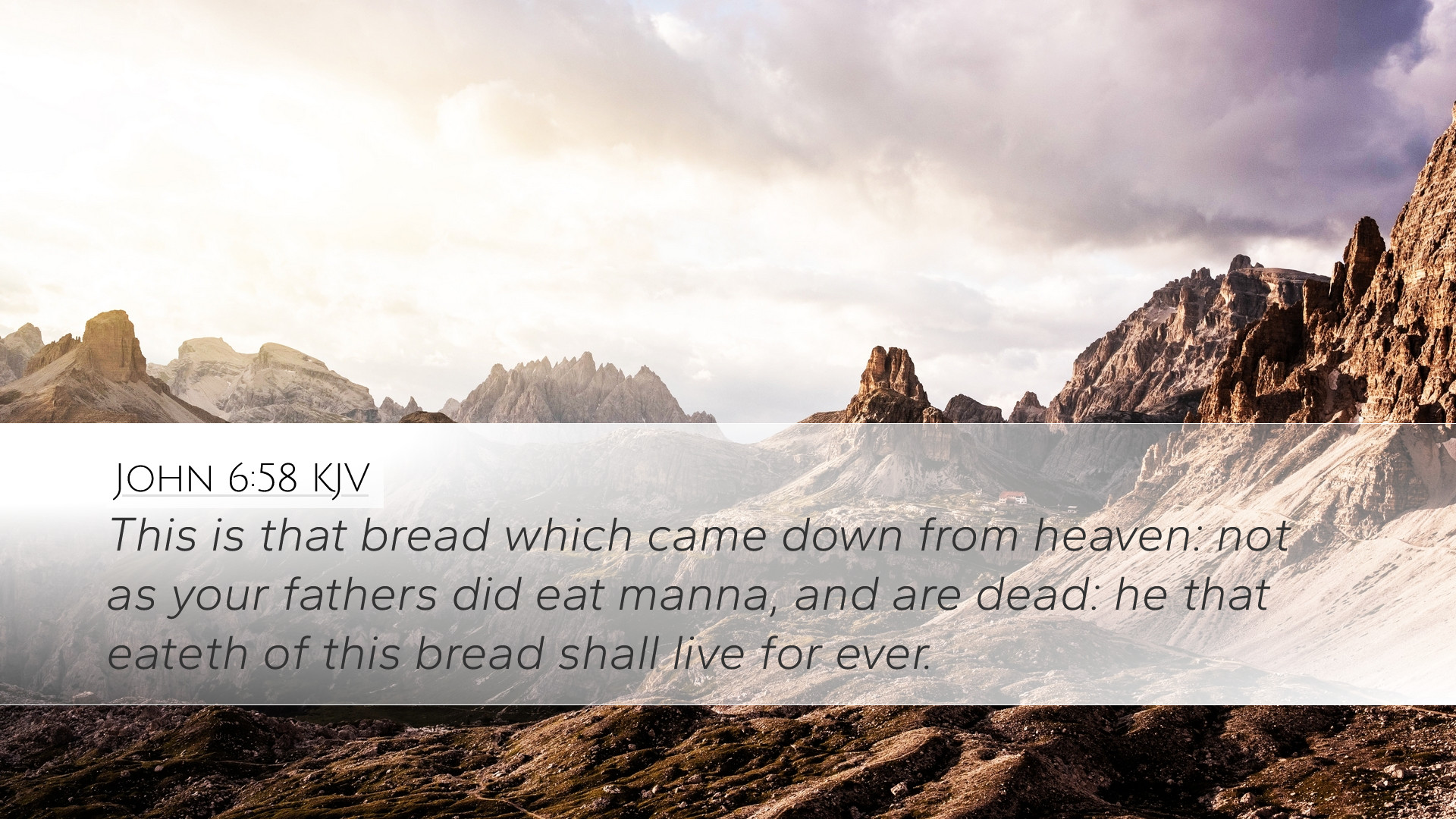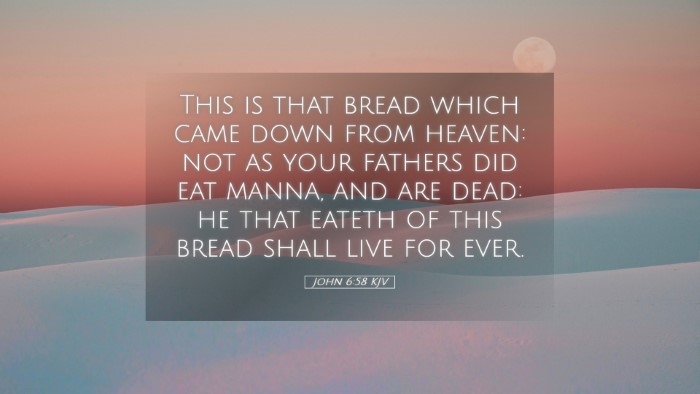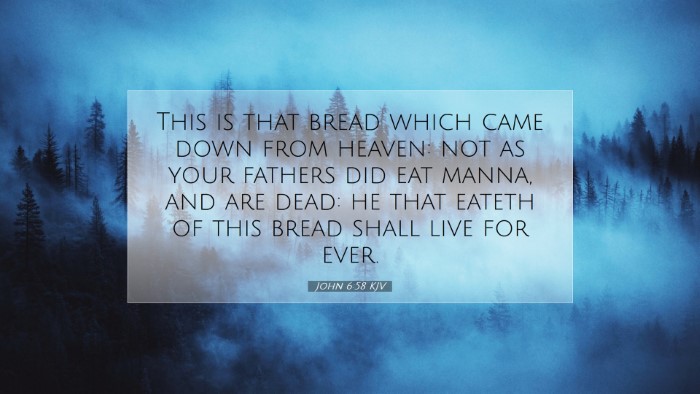Commentary on John 6:58
John 6:58 states, "This is the bread which came down from heaven; not as your fathers did eat manna, and are dead: he that eateth of this bread shall live for ever." This verse is a pivotal part of Jesus' discourse on the Bread of Life, emphasizing the distinction between the miraculous sustenance provided to the Israelites in the wilderness and the ultimate sustenance offered through Him.
Contextual Background
This passage is situated in a broader narrative where Jesus has just fed the five thousand and is now teaching the crowd that looks for physical bread. The Jews’ conversation about Moses and the manna reveals their misunderstanding of Jesus’ true nature and mission.
Significance of the Bread from Heaven
-
Manna vs. the Bread of Life:
Matthew Henry draws a comparison between the manna given to the Israelites and the bread that Jesus represents, noting that while the manna sustained physical life temporarily, it ultimately could not prevent death. In contrast, the Bread of Life offers eternal sustenance (Henry).
-
Christ as the Fulfillment:
Adam Clarke elaborates that Jesus, as the true Bread from Heaven, fulfills the type of the manna. He indicates that, unlike the earthly provision which required continuous gathering, Christ provides a once-for-all solution for spiritual nourishment and eternal life (Clarke).
The Promise of Eternal Life
-
Living Bread:
The phrase “he that eateth of this bread shall live for ever” conveys a profound promise of eternal life. Albert Barnes remarks that this signifies a spiritual communion with Christ, wherein believers partake of His essence through faith, resulting in everlasting life (Barnes).
-
Spiritual Understanding:
The discourse signifies a shift from the literal to the spiritual. Henry observes that the real meaning lies in the act of believing in Jesus as the source of life, rather than merely partaking in a ceremonious act. Thus, the emphasis is on the personal relationship between the believer and Christ (Henry).
Contrasting Death and Life
-
The Death of Those Who Partook of Manna:
The reference to the fathers who ate manna and died serves as a sobering reminder of the temporality of earthly sustenance. Clarke notes that while the physical bread sustains life temporarily, it could not save from the ultimate fate of death, highlighting the need for a greater spiritual sustenance (Clarke).
-
Declaration of Life in Christ:
Jesus’ declaration offers hope, presenting Himself as the means through which believers can attain eternal life. Barnes emphasizes that by accepting and internalizing Christ as the Bread, believers find true life which transcends physical existence (Barnes).
Theological Implications
-
Communion with Christ:
The sacramental understanding of eating the flesh of Christ surfaces within this passage. Henry suggests that this portrays an intimate relationship through faith and the reception of grace, highlighting that Christians partake in the spiritual realities of Christ’s sacrifice (Henry).
-
The Nature of Eternal Life:
Clarke advises that eternal life is not merely a postponed experience but begins in the present through a relationship with Christ. This understanding aligns with the Johannine theme of eternal life being a present reality as well as a future hope (Clarke).
Application for Believers
For modern-day believers and theologians, John 6:58 serves as a profound reminder of the necessity of engaging genuinely and spiritually with the person of Christ. Pastors can draw upon this text in preaching about the sufficiency of Christ for all needs—spiritual, physical, and eternal. The call to partake of the Bread of Life challenges Christians to assess their reliance on Christ for sustenance in a world filled with transient pleasures and assurances.
Furthermore, the verse underscores the importance of faith—a faith that leads to a life-giving relationship with Jesus. It invites believers to deeply reflect on their partaking of Christ in their daily lives and stresses the hopeful promise of life that is sustained through Him beyond the physical realm.
Conclusion
In summary, John 6:58 encapsulates a critical theological truth about Christ as the ultimate source of life and sustenance. The insights from public domain commentaries illuminate the rich implications of this verse for personal faith, communal worship, and the intellectual engagement of the church with the teachings of Jesus. It calls every believer towards a deeper communion with Christ, urging them to seek the Bread of Life to experience the fullness of life that He promises.


